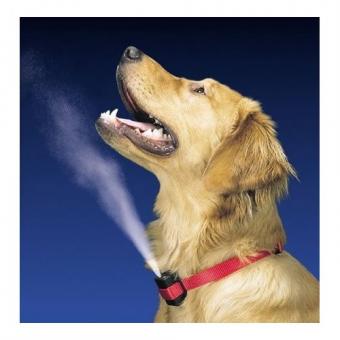The Barker

#1 Begin During Puppyhood

#2 Try a Squirt Bottle

#7 Last Method to Stop Barking Dogs

© 2024 LoveToKnow Media. All rights reserved.

Looking for methods to stop barking dogs? Nuisance barking can be a big problem for dog owners as well as anyone else within ear shot. Here are a few tips to reduce barking in your own pet and maybe even the neighbor's dog as well.

It's easier to keep dogs from developing a barking habit during puppyhood, so that's the time to take action. You can teach an adult dog to give up unnecessary barking, but it takes much longer. When your puppy barks indiscriminately, use a one word command such as "stop." Say it firmly enough to interrupt your pet, and then immediately offer him something else to occupy his attention, such as a chew treat or toy. The distraction and reward are often enough to take his mind off barking for a while and prevent him from barking just to amuse himself.

It's an old remedy, but giving your dog a harmless and unexpected squirt of plain water right in his face is often enough to interrupt the nuisance behavior. Do it impersonally, and walk away immediately after delivering your squirt so your dog doesn't necessarily associate you with the unpleasant act.

Offering interactive dog toys just might provide a solution for the problem barker that carries on while you're away from home. Many dogs bark out of boredom, and these toys offer a better way to occupy their minds and provide mental and physical stimulation. There are talking toys as well as toys you can load with treats and kibble that your dog has to work for to retrieve.

Clicker training uses a positive association method to reinforce good behaviors. In short, you train the dog to associate the clicker with a reward. Next, you distract him from his barking and immediately click and reward him when he stops the unwanted behavior. With repeated reinforcement, he begins to associate stopping his barking with something good happening to him and eventually gives up the nuisance behavior. Clicker training is also useful for a variety of other training needs.

For the hard core barker, a citronella collar can be a very useful tool. The collar is equipped with a sensor that is triggered by vibrations that emanate from the dog's throat as he barks. Once triggered, the sensor signals a mechanism in the collar to release a short, small burst of citronella. The spray is harmless, but most dogs dislike the scent and eventually learn to associate their barking with the unpleasant response. The collar will not respond to another dog's bark. Note that this collar should not be used on a dog with known anxiety issues.

There are ultrasonic units that emit a noise deterrent when your dog barks. These devices can often detect barking as far as 35 feet away, so they may also be useful when dealing with a neighbor's barking pet. Ultrasonic bark collars are also available.

Debarking is a surgical procedure conducted on the vocal chords that reduces the volume of a hard core nuisance barker. Like all surgeries, it does present risks associated with anesthesia and bleeding. For this reason, the procedure should only be performed if all other solutions have failed and continued barking would put the dog's home in jeopardy.
Now that you've learned a little more about controlling barking, visit Dog Health Issues to learn about other ways to care for your pet.